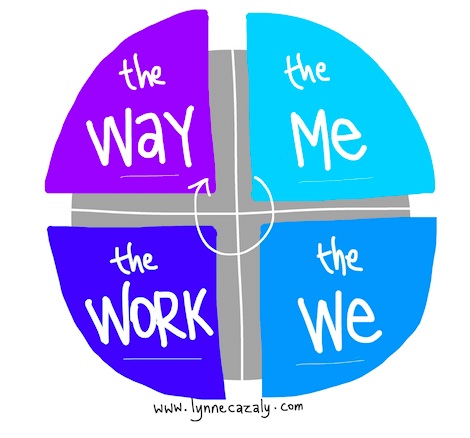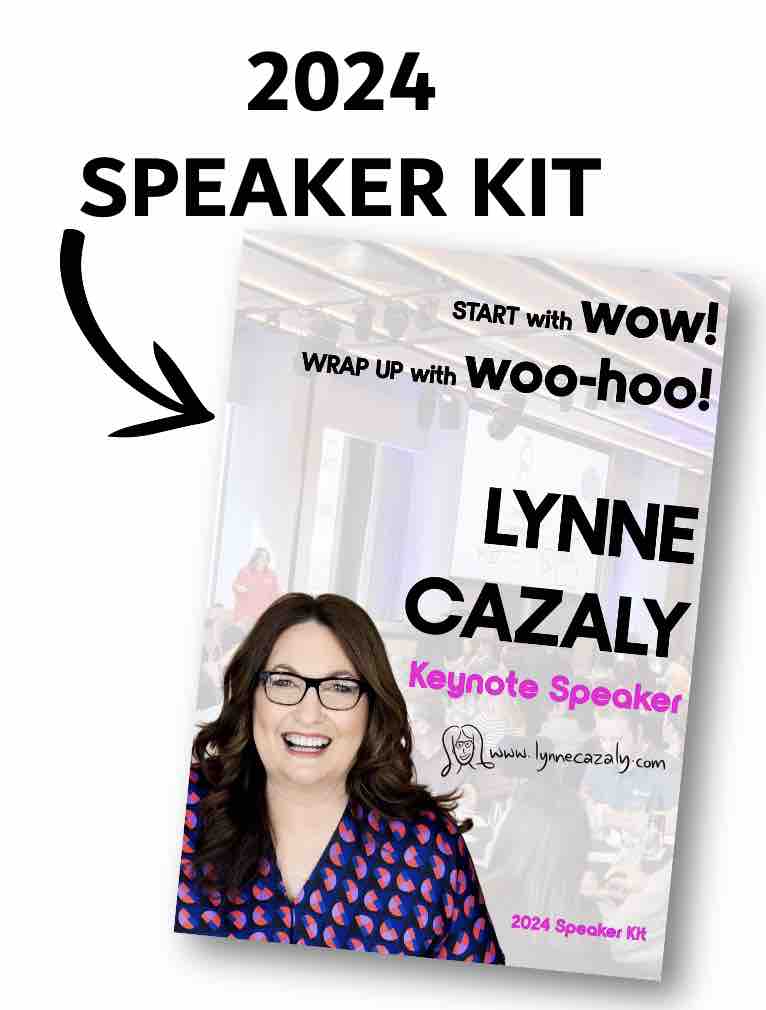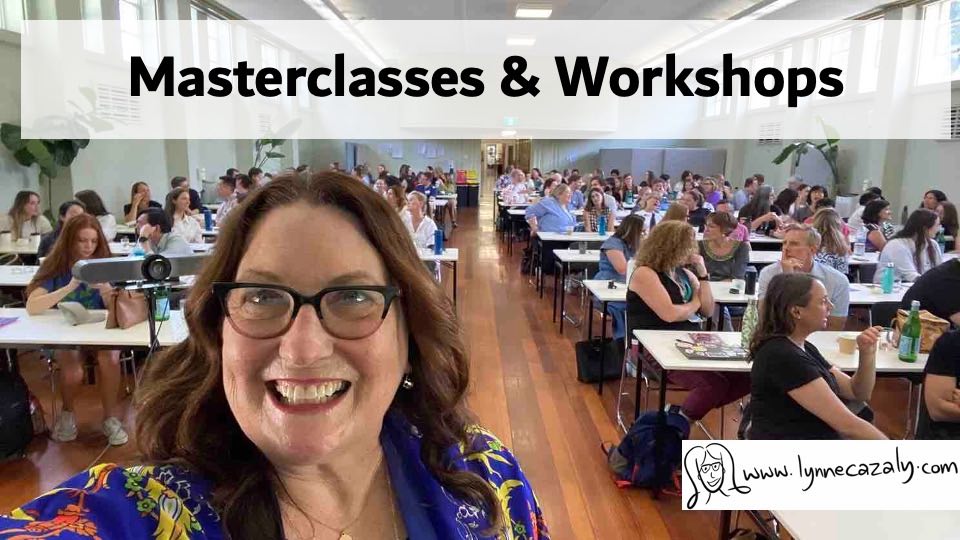Why bother doing better...
 Thursday, January 12, 2017 at 11:05AM
Thursday, January 12, 2017 at 11:05AM When you’ve cursed or waved your fist at a fellow road user -- pedestrian, cyclist, driver, truckie -- for doing something crazy on the road, just remember that we can’t allbe above average drivers. Some of us are highly proficient and skilled, confident and capable. Others of us are less so … and we’ve all done something at some time that wasn’t the best decision while on the road.
The same applies to drivers at work: leaders running meetings and workshops. We might, possibly, perhaps, maybe think we’re pretty great when it comes to leading meetings, getting outcomes with a team and keeping people engaged throughout the process!
Many a leader I’ve observed, coached or developed in facilitation skills -- the skills leaders use to bring their team together, remove obstacles and get good work done -- believe they’re pretty hot, highly capable and in short, "nailin’ it".
But we can’t all be above average facilitators.
It could be that we haven't recently gained perspective on how we’re going or perhaps we may not have adjusted our style to incorporate some of the newer approaches to working with people that help bring them together and get work done.
Or we might be comparing ourselves to those we work with and okay, so fair enough, in comparison with that sample, we may well be hot! But outside of your organisation’s culture of meetings and workshops, you may be resorting to habitual patterns of behaviour that could be impacting how you’re performing... and the results you're getting in meetings and workshops.
A New View
Time and again in my workshops on facilitation skills I see how delighted people are to learn new skills, capabilities and techniques in how to handle what happens in meetings, team sessions and workshops. They are thrilled in fact! Their confidence lifts. They have new ways of working with people that are contemporary, yet caring; new ways that are creative yet productive.
We don’t know what we don’t know when it comes to many aspects of leadership, collaboration, motivation, performance… you can put facilitation on that list too.
The role of the workplace leader continues to evolve.
Increasingly leaders are needing workplace group leadership skills across three main areas:
- to create the right environment or culture for collaboration,
- to elicit information from the team and
- to build cohesion - to help bring a team together and to help them stick. (And... taking them out for drinks doesn’t count!)
So it makes sense for leaders to continue to look at how to build these types of capabilities, to build their social intelligence and to get better leverage for the time they spend working with their direct reports.
Why bother doing better?
If you’re on your own journey of going from good to great as a leader -- no matter your role, field, industry or organisation -- think about why you would step-up in your capabilities and performance.
In each of my workshops on facilitation skills or 'Leader as Facilitator' program, I ask participants why they want to do better or why they want to improve their facilitation capability with their team in their organisation.
Gathering up all of those replies to ‘why’ over recent years, the responses seem to focus on four main areas (and you'll see some direct quotes from the sessions):

The ME
(me, myself, I - this is about them, the leader)
Their responses include improving their facilitation capability to:
- Build confidence
- Learn! Always be learning
- Confirm if I am on the right track with what I’m doing now
- Be more persuasive. One participant recently said: "Perhaps I’m a little bit direct; how can I be more persuasive, impactful, engaging – all at once?". Aaaah yes, a magical trio there, but it can be done.
- Understand what to do when I don’t know what to do
- Break old habits and routines
- Improve my communication skills
- Become a better leader (Yes! Nice one that.)
The WE
(them, they, us - this is about the participants, their direct reports, team members, stakeholders, the people they work with)
They said they wanted to improve their capabilities to facilitate as a leader to:
- Influence stakeholders and learn more ways to influence people
- Handle tricky situations and strong personalities in the room (urgh, don’t you just break out in a sweat at the thought of the next one of those you have to lead!)
- Manage up; to be able to lead leaders
- Get people on board a change program or a new or changed project
- Engage people to increase their commitment to follow through on actions
- Keep people motivated
- Manage differing outcomes and expectations
The WORK
(it, that, the work - this is about the work to be done)
Participants said they wanted to improve their abilities to facilitate in meetings and workshops to:
- Get to a decision - as one leader said, "It's fine to all talk and contribute but where is it eventually going? Do we need to get somewhere and get agreement? If so, then I have to make that happen without being a steamroller".
- Give a name to things we may do instinctively as leaders; "I'd like to be more conscious of deliberately doing something because then I’ll know what to do to get what outcomes."
- Conduct more effective meetings (oh so common this one - such a h-u-g-e time waster when it doesn't go well)
- Achieve outcomes in a group or team environment. "The more people there are, the messier it can get, but we still need to do stuff", said a leader recently.
- Keep a group of people on track and get the work done. (It's an ongoing and fine balancing act, hey?)
The WAY
(how we do the work - this is about how we work together, the culture of the meeting or workshop, how we perform as a group)
Participants said how they work would be boosted with better facilitation skills to:
- Add to the toolkit of strategies and tactics we know about when working in a group situation
- Move away from click and point PowerPoint presentations; "It’s not a presentation - it’s a workshop, dude", was feedback from a leader’s direct report at a design thinking workshop recently. Ouch! But it was feedback that jolted that leader and helped them shift their thinking and then go ahead and build their facilitation capability
- Techniques to get beyond group ‘niceties’. "You know, we’re all being nice and getting along and perhaps being compliant in our decision making so we don’t rock the boat, rather than feeling like you can have robust discussion and diverse participation."
- Get different views from around the room
- Harvest ideas and get deeper information from all of the team or unit or from smaller groups or areas of the business who might not normally participate in these sessions
- Run better meetings; "we spend so much time in them and we simply don’t do them well enough”.
There are so many ways an enhanced capability to facilitate in your team will benefit you and the team, the work that gets done and the way you all do the work.
And while it's just one capability - facilitation - it has so many facets, perspectives, skills, techniques, ways of thinking and depth to it. It's a practice.
What’s most needed where you are at the moment?
Watch what happens over the next few days and weeks -- where do you think a better, stronger capability to facilitate (to make things easier for the team) would be beneficial?















